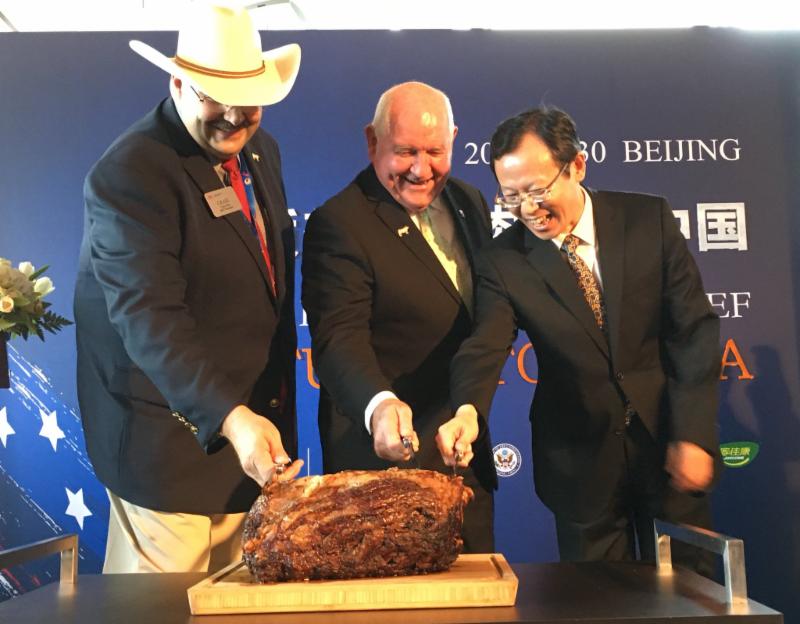OCM calls on President Trump to renegotiate beef trade deal with China
|
| Friends,
Today, we are calling on the Trump Administration to renegotiate the trade deal that will allow U.S. beef exports to China, to ensure it does not put U.S. farmers and ranchers at a disadvantage to foreign imported beef from Canada and Mexico. The current trade deal provisions do not limit beef exports to China to only U.S. raised beef, rather they allow the exported beef to originate from the U.S., Canada or Mexico. The words describing the exported beef under this trade agreement as "U.S. beef" are misleading to both the U.S. cattle producers who are seeking market opportunity and to Chinese consumers who will think they are purchasing high-quality U.S. beef. Second, U.S. cattle producers are being held to a higher standard of traceability than are their counterparts in Mexico and Canada. The U.S. cattle producer must provide a premise identification, but imported cattle or beef are not under the same burdensome requirement. This higher standard drives up U.S. cattle producers’ costs, putting them at a market disadvantage. In a letter to President Trump, we are asking that the Administration renegotiate this trade agreement to ensure only U.S. beef originating from U.S. farms and ranches be allowed to be exported to China. Further, we request that all of the exported beef products to China bear a label identifying the country where the animal was born, raised and processed. The National Cattlemen’s Beef Association (NCBA) claims to have "worked closely with USDA throughout the entire process," of negotiating the deal, ensuring the U.S. is once again supporting foreign beef – not U.S. beef – through our trade policy. Our letter to President Trump points out that by its own admission, NCBA represents less than 4 percent of U.S. cattle producers. The fact is, NCBA does not represent U.S. farmers and ranchers; what they do represent is the interest of the majority of the world’s major meat packers. We are hopeful that in the future this administration will allow the interests of U.S. farmers and ranchers to be at the table so America’s interests are represented. It should never be the U.S. government’s position to further foreign owned and operated multi-national corporations’ interest over that of U.S. farmers, ranchers and businesses. |
| Thanks for all you do,
Angela Huffman Director of Communications and Research Organization for Competitive Markets |

